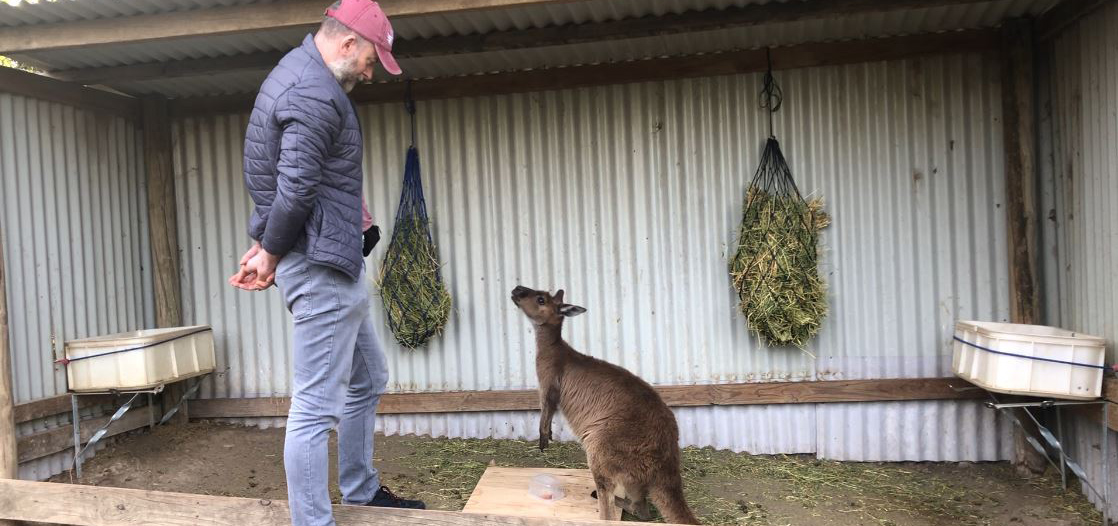What’s up Skip? Kangaroos really can ‘talk’ to us
- Wednesday, December 16, 2020
Kangaroos can intentionally communicate with humans, research reveals.

A kangaroo displays a gaze alternation between the unsolvable box and human. (Credit: Alexandra Green)
Animals that have never been domesticated, such as kangaroos, can intentionally communicate with humans, challenging the notion that this behaviour is usually restricted to domesticated animals like dogs, horses or goats, a first of its kind study from the University of Roehampton and the University of Sydney has found.
The research which involved kangaroos, marsupials that were never domesticated, at three locations across Australia*, revealed that kangaroos gazed at a human when trying to access food which had been put in a closed box. The kangaroos used gazes to communicate with the human instead of attempting to open the box themselves, a behaviour that is usually expected for domesticated animals.
Ten out of 11 kangaroos tested actively looked at the person who had put the food in a box to get it (this type of experiment is known as “the unsolvable problem task”). Nine of the 11 kangaroos additionally showed gaze alternations between the box and the person present, a heightened form of communication where they look between the box and human.
The research builds on previous work in the field which has looked at the communication of domesticated animals, such as dogs and goats, and whether intentional communication in animals is a result of domestication. Lead author Dr Alan McElligott, University of Roehampton (now based at City University of Hong Kong), previously led a study which found goats can understand human cues, including pointing, to gather information about their environment. Like dogs and goats, kangaroos are social animals and Dr McElligott’s new research suggests they may be able to adapt their usual social behaviours for interacting with humans.
Dr Alan McElligott said: “Through this study, we were able to see that communication between animals can be learnt and that the behaviour of gazing at humans to access food is not related to domestication. Indeed, kangaroos - showed a very similar pattern of behaviour we have seen in dogs, horses and even goats when put to the same test.
“Our research shows that the potential for referential intentional communication towards humans by animals has been underestimated, which signals an exciting development in this area. Kangaroos are the first marsupials to be studied in this manner and the positive results should lead to more cognitive research beyond the usual domestic species.”
Dr Alexandra Green, School of Life and Environmental Sciences at the University of Sydney, said: “Kangaroos are iconic Australian endemic fauna, adored by many worldwide but also considered as a pest. We hope that this research draws attention to the cognitive abilities of kangaroos and helps foster more positive attitudes towards them.”
A copy of the full study is available on https://royalsocietypublishing.org/doi/10.1098/rsbl.2020.0607
*The study involved kangaroos at three locations in Australia: Australian Reptile Park, Wildlife Sydney Zoo and Kangaroo Protection Co-Operative. The research was funded by a grant from the Association for the Study of Animal Behaviour (ASAB).